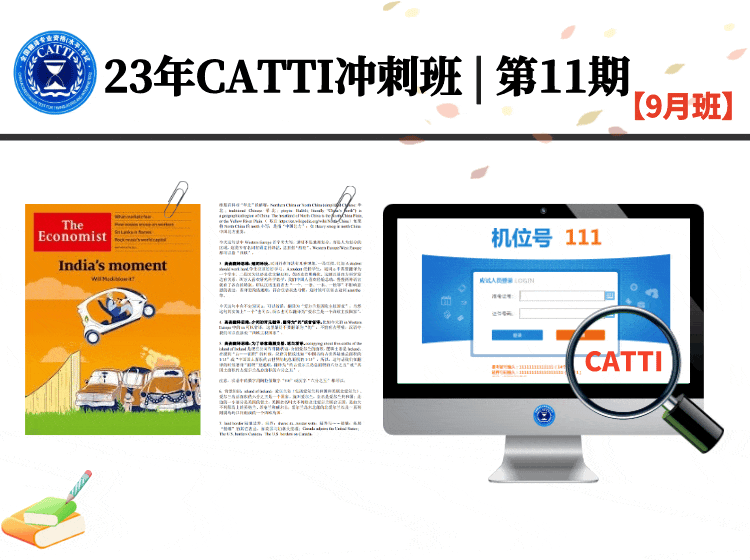更多精彩英语翻译内容,请关注微信公众号:高斋翻译学堂
书籍推荐:20个容易翻译错的句子——《翻译的基本知识》
今天公主号“高斋翻译学堂”给大家分享下《翻译的基本知识》里面的一些知识点,容易译错的句子。这本书算是翻译入门书籍,看完后对翻译有个初步的认识,但是里面的不少译文我私以为还是有很大的改进空间,翻译没有最好,只有更好,大家看的时候多思考。
钱歌川《翻译的基本知识》的读书笔记
所著书籍:《翻译的基本知识》《英文疑难详解》《翻译的技巧》《英文一日一题》
容易译错的句子
英译中
在翻译中翻错是难免的。对于艰深难懂的奥义,译错也是在所难免。但对一般的译者而言,译错大多由于疏忽与对字义的了解不够造成的。钱歌川先生将可能犯的错误归类如下。
1. 由误解而生的错误:由于英语单词通常一词多义,以及隐藏的含义,随意这类错误比较简单名了。
We are here today and gone tomorrow.
(误译)我们今天在这里,明天就到别处去了
(应译)人生朝露(今日生存,明日死去)。
这句中,”gone”有隐秘的含义,表示“死去,离去”,比如,You'll be sorry you said that when I'm dead and gone. 我死后你会为你说的话感到后悔的。We are here today and gone tomorrow字面意思就是“我们今天在明天就不在了”,可以说“人生朝露”, 就是形容我们的人生如同早晨的露水,稍纵即逝。
2. 由疏忽而引起的错误:这方而的错误,多由未注意英文的惯用法而至。
They robbed his safe.
(误译)他们偷走了他的保险箱。
(应译)他们盗取了他保险箱内的东西。
Rob是“抢劫;掠夺;盗取”的意思,我们通常说的抢银行,实质指的是抢银行里的钱财,而不是银行。“盗取保险箱”意思是“盗取了他保险箱内的东西”,一般小偷入室,偷走的是“保险箱内的东西”不是直接“把保险箱偷走”,这是汉语中的惯用用法,翻译时要注意。
3. 文句分析上所发生的错误。
We still call the copper-colored natives of the New world Indians.
(误译)我们现在仍然把这古铜色的土著,叫做新大陆的印第安人。
(应译)我们现在仍然把新大陆的这铜色的土著,叫做印第安人。
短语是call sb sb,第一个sb是the copper-colored natives of the New world;第二个sb是Indians,翻译的时候要注意短语的用法是是什么,修饰成分是谁的。
4. 照字面解释的错误:这是翻译中较容易犯的错误,对字义的误解而产生误译。
This is some war!
(误译)这是某样的一种战争。
(应译)这是一场大战!
“some”在英文中,除了表示“某些, 一些”,还有一种“曲言法”的用法代替”great”.比如”It was some storm.”好大的风暴。”It was some party.”盛会等,汉语里面也不会用“这是某样的一种战争”这种表达,所以翻译的时候要注意一词多义的理解。
5. 关于成语比喻等修辞上的错误:这种错误易于识别和改正。只要知道了单词实际的成语意思就可以。
It is a long lane that has no turning.
(误译)这是一条不转弯的长长的小道。
(应译)世上没有一条不转弯的路。
这句是一句谚语,翻译的时候不要直译,可以先想想汉语中有没有对应的说法,既然所有道路都会转弯,那不好的运气也有结束的时候。汉语中的“否极泰来”比较恰当。
中译英
一般来说,中国人做中译英相对难些,英文是目的语,是我们不熟悉的语言,在用词及语言组织上错误会比较多。
6. 依照汉语直译而生的错误:英语和汉语在句法结构,词汇的用法习惯上都有很大差别,容易出错。
他父亲破产使他不能出洋去留学了。
(误译)The bankruptcy of his father has made him impossible to go abroad.
(应译)The bankruptcy of his father has made it impossible for him to go abroad.
汉语“使”的主语是“他父亲破产”,英语里面Made的主语不能是某个东西,英文的 possible或 impossible一类的词,是要用“it”来作形式主语,就是made it impossible for sb to do sth这样的句型,例如,It is impossible for him to attend this meeting. 他不可能参加这次会议
7. 违背惯用语法而来的错误:英语中很多词语,特别是动词,都有其固定的搭配使用方法,译的时候要注意,不能只考虑意思,还要考虑固定用法。
那个教授毕生献身于英文学的研究。
(误译)The professor devoted his whole life to study English literature.
(应译)The professor devoted his whole life to the study of English literature.
根据英语语法,devote to后必须接名词,devote ones life to sth表示“献身于某项事业”,例如,I will devote all my life to the cause of education. 我愿把毕生献给教育事业。这是固定用法,翻译的时候要考虑英语的固定用法,不能乱用。
8. 滥用英文成语而来的错误:
看电视,打网球,每个礼拜天就是这样度过了。
(误译)What with watching television and what with playing tennis, I spend every Sunday.
(应译)I spend every Sunday watching television or playing tennis.
What with...and what with...是一个惯用用法,列举原因和理由,意为:一方面因为...另一方面因为..。通常导致不好的结果。如:What with the weather and what with the heavy load on the broad the ship was late getting to the port. 一方面由于天气,另一方面由于载货太重了,船迟迟才到港口。
又如:What with overwork and( what with) undernourishment, he felt ill. 工作超负荷,加之营养不足,他病倒了。
再分享几个书中的句子:
9. 我怀疑这事是否真确(真确是书里面的,以前他们确实这样说,现在多说真实)。
误译:I doubt that it is true.
应译:I doubt whether it is true
10. 我将用电报把结果通知你。
误译:I will inform you the result by telegram
应译:I will inform you of the result by telegram
11. 我昨天跟你讲的那本书要我拿给你看吗?
误译:Shall I show you the book which I told you yesterday?
应译:Shall I show you the book I told you of yesterday?
12. 健康比财富可贵。
误译:Health is precious than wealth.
应译:Health is more precious than wealth
13. 他年轻时的勤勉,使他获得今日的地位。
误译:His diligence in his younger days made him what he is today.
应译:His diligence in his younger days has made him what he is today.
14. 我哥哥是一个跳舞迷。
误译:My brother is a dance mania.
应译:My brother has a mania for dancing.
15. 新加坡有好多人口?
误译:How many population has singapore.
应译:What is the population of Singapore.
16. 那语言中心有很多优良的设备。
误译:The language centre has many fine equipments
应译:The language centre has much fine equipment.
17. 假期从明天开始。
误译:The vacation begins from tomorrow.
应译:The vacation begins tomorrow.
18. 一到新加坡,我朋友就在机场等着接我。
误译:On arriving at Singapore, my friend was waiting for me at the airport.
应译:On arriving at Singapore, I found my friend waiting for me at the airport.
19. 这学校有三千个学生。
误译:The school has three thousand students.
应译:There are three thousand students in the school.
20. 这种燃料得以在英国大多数家庭里广泛使用。
误译:The fuel is used in majority of British homes.
应译:The fuel is used in the majority of British homes.


|
书籍推荐:20个易译错的句子《翻译的基本知识》
文章来源:高斋翻译学堂
发布时间:2019-10-16 18:12
作者:高斋翻译学堂
点击:次
|






